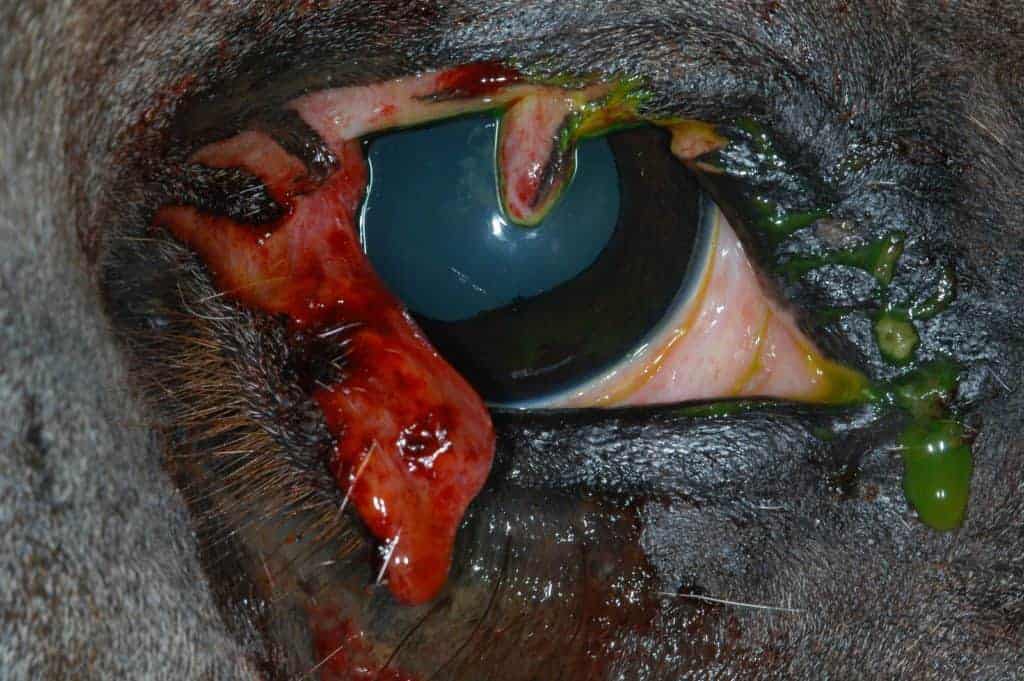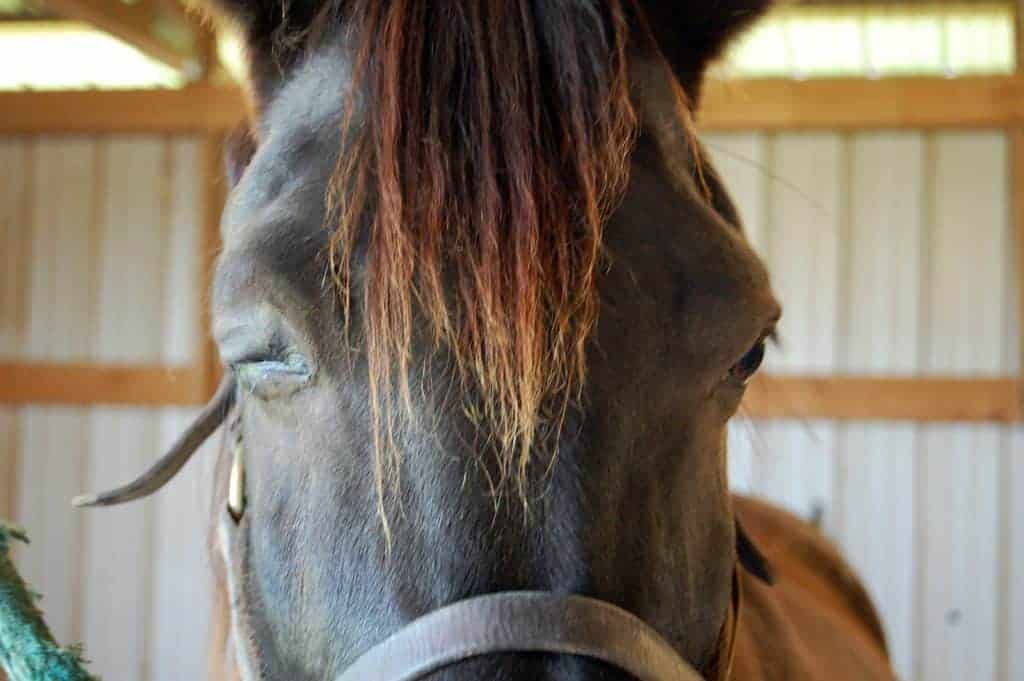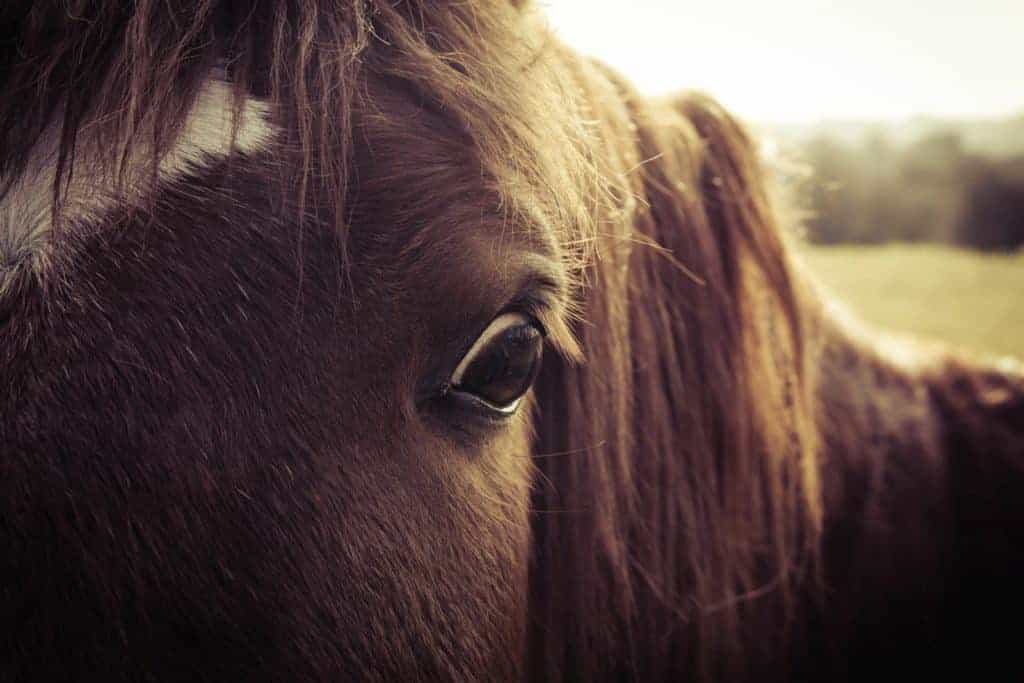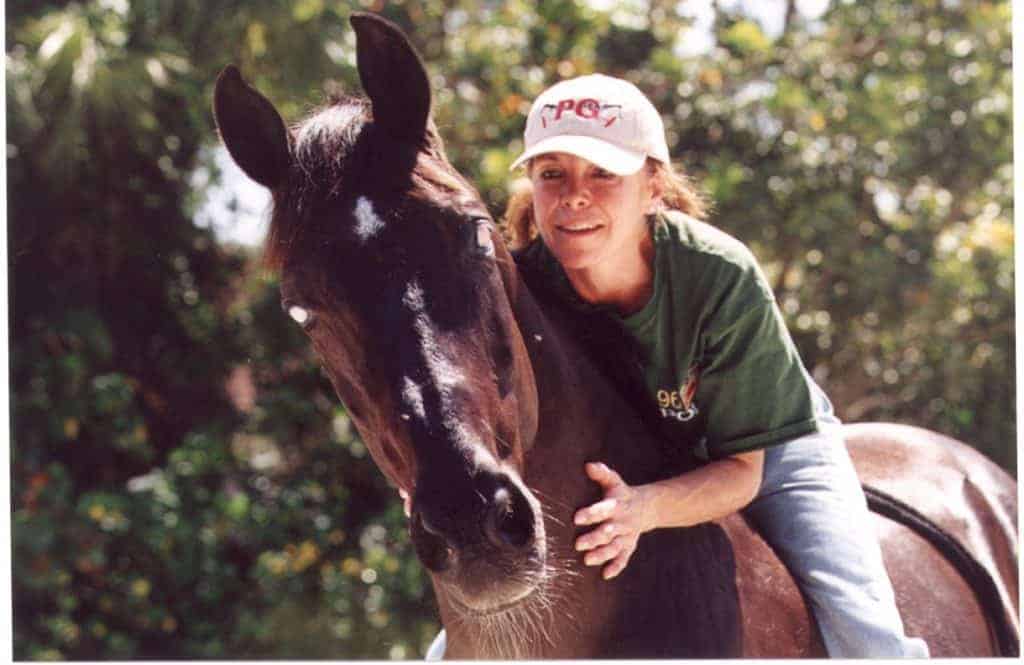
Managing Equine Eosinophilic Keratoconjunctivitis
Eosinophilic keratoconjunctivitis generally has severe clinical signs and requires prolonged treatment.

Eosinophilic keratoconjunctivitis generally has severe clinical signs and requires prolonged treatment.

Before you sign the papers for your new horse, have your veterinarian look the horse in the eye.

Although eyelid lacerations are common, they should be considered surgical emergencies.

Carol Clark, DVM, Dipl. ACVIM, shares her picks for the top equine medicine studies of 2013.

Corneal confocal microscopy can help veterinarians identify microscopic foreign objects in horses’ eyes.
Lecture topics will include exercise intolerance, wound care, hoof care, ophthalmology, and more.

Attendees discussed fungal keratitis, ocular medications, and equine recurrent uveitis.

Have you ever wondered how your horse sees the world, or how you should respond to an equine eye emergency? Get your equine eye and vision questions answered by a board-certified veterinary ophthalmologist.
The program includes lectures on feeding senior horses, saddle fitting, moon blindness, bandaging, and more.

Find out what your elderly horse needs to stay healthy in his golden years.

Equine eye injuries require prompt evaluation in order to start appropriate therapies.

Can you see stress in your horse’s eyes? It’s possible if you’ve got an infrared thermographic camera.

Dr. Amber Labelle discusses common equine eye diseases, their causes, symptoms, and treatments.

Dr. Amber Labelle shares information about common eye injuries in horses and how they are treated.
Why can I see the whites of my horse’s eyes all the time, even when he’s relaxed? He is a chestnut Appendix Quarter Horse gelding.

Blind dressage horse Valiant is in critical condition with endocarditis, his owner told The Horse.
Stay on top of the most recent Horse Health news with
"*" indicates required fields